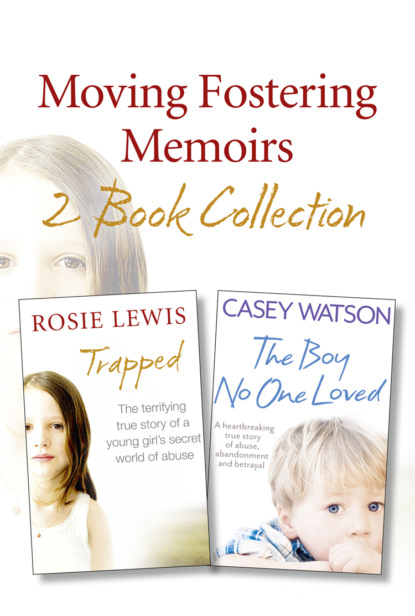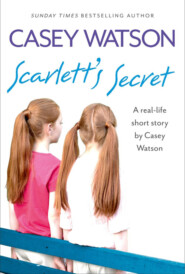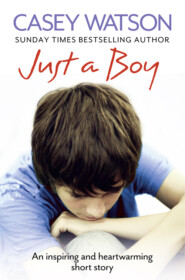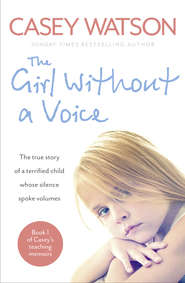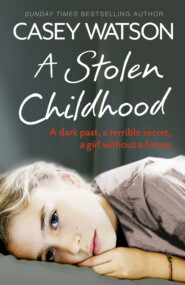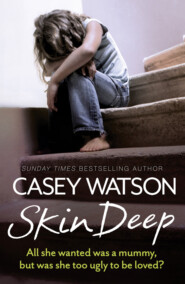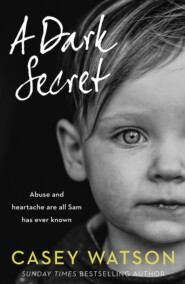По всем вопросам обращайтесь на: info@litportal.ru
(©) 2003-2025.
✖
Moving Fostering Memoirs 2-Book Collection
Настройки чтения
Размер шрифта
Высота строк
Поля
I gripped a handful of hair and pulled it back from my forehead as I listened to her, pacing the patio with impatience. ‘Self-injury is common in sufferers and the hospital have no concerns about her home life. I’ve discussed this with Mr Steadman and he said that her symptoms were bound to be more troublesome during times of change or stress. He says that is all the more reason for the foster carer to be extra vigilant.’
Sighing, I stopped mid-pace and leaned my head against the glass, shielding sunlight from my eyes to get a clear view of the living room: the beanbag was empty. With a sinking feeling, I yanked the door open in one swift motion, hurrying from room to room.
‘So anyway, since we’ve discussed Phoebe on the phone, I’ll log this call as one of my visits, yes?’
‘Fine, yes,’ I agreed quickly, saying a hurried goodbye before I realised what she was actually asking. Where on earth was Phoebe? Charging up the stairs, I finally found her standing stock-still in the middle of her room, a guilty grin spread across her face.
‘What have you been doing up here, Phoebe?’
‘What have you been doing up here, Phoebe?’
I sighed, not realising that in less than 10 minutes I would find out why she was looking shamefaced.
Even in the context of the last, difficult week, when I went downstairs and opened the post the kicking, smearing, mimicking, even the self-harming, paled into insignificance next to the contents of one of the letters. The envelope was hand-written and so, as I knew it was unlikely to be a bill or circular, it drew my attention immediately.
I tore it open, immediately registering the signatures at the bottom of the page: Will and Carolyn x.
It was Tess and Harry’s new parents, who had recently adopted the two toddlers I had fostered. A slow nausea rose in my throat as the words, ‘very sorry’, ‘clean break’ and, ‘really feel it’s for the best’ jumped out at me. Confused, I scanned the letter over and over again, trying to take in its contents. Slowly the message surfaced – they had come to the ‘difficult’ decision that it was best not to allow me to stay in touch with the children.
Will and Carolyn had been advised not to cut ties with me when they adopted the siblings since children can suffer lifelong depression if early attachments are severed. Scrutinising the letter again, I began to absorb their apologetic reasoning. It seemed Tess and Harry had spent their first few weeks searching for me – in cupboards, behind doors – unable to take in their loss. Now, five weeks later, they finally seemed to accept their circumstances and their new parents were concerned that seeing me would set them back and start their grieving process all over again.
Sinking into the sofa, I gripped the letter in my hand and held it to my chest. It was horrible to think that the children I had cherished for nearly three years had been searching for me. A wire of guilt passed through me at the thought of them feeling so abandoned. In turmoil, I tried to absorb the prospect of never seeing the siblings again.
Sensing someone near, I looked up and noticed Phoebe hovering in the doorway. She was staring at me strangely and I assumed she was confused by the look on my face. Slowly, she drifted into the room and sat beside me on the sofa, close enough for me to feel the warmth from her thin body. Was she seeking comfort after the tribulations of this morning or had she somehow intuited my despairing mood? Whatever the reason, I was touched and grateful for her gentleness. Instinctively I responded, wrapping my arm around her shoulder.
It was then that she slipped her hand into my own, tilting her face up to smile at me. The grotesqueness of her twisted features hit me first, before I registered the slippery feel of her palms against my own and the dank, acrid smell rising from my lap.
Phoebe had soiled in her own hand, catching me completely unawares.
By dinnertime my nerves were so shredded that when Phoebe made a grab for Jamie’s fork I felt my hackles rise. ‘Put that down,’ I snapped. ‘You only need a spoon for porridge.’
‘Fuck off!’ she spat.
I raised my finger and, waggling it in front of her face, I burst out: ‘Don’t talk like that in this house,’ oscillating emotions making my voice quiver. It wasn’t the swearing that unsettled me so much as the look in her eyes. Not simple defiance, something far more disturbing: pure, unequivocal hate. ‘Now, go to your room and stay there. Do you hear me?’
Her gaze remained bold and challenging but I was relieved to see that she wasn’t going to put up a fight. She slipped quietly from her chair and left the room.
Chapter 12 (#u8b0fe4c2-ebf3-57a7-9780-4f35f93aafa6)
It took some heavy-duty self-coaching that night to convince myself to stick with the placement. Phoebe had looked at me with such hatred that my instincts were screaming at me to put as much distance between her and the rest of the family as possible. Digging deep, I forced myself to draw on my drive to heal, on my past experiences, and the amazing turnarounds I’d witnessed before, so that I could turn the dislike I was feeling into empathy. She must have been hurting badly to feel so much hatred, her self-harming told me that. Once I felt more forgiving, I decided that the first thing I should do was to broach the subject of self-harm with her.
After rehearsing the conversation in my mind overnight, I invited her to sit next to me on one of the fluffy beanbags in her room once she had washed and dressed, hoping she was in one of her more coherent phases. Since she flipped from rational to illogical several times in any one hour, catching her at the right time was simply a matter of chance.
I nudged her playfully with my shoulder. She smiled, nudging me back. It was a positive start.
‘How’s your arm feeling this morning, honey?’
From her hesitation and the way she stared at her forearm, almost in surprise, I got the impression she was thinking, what on earth is that bandage doing there? After a moment she shrugged and reached for a shiny bracelet on her bookshelf that had grabbed her attention. ‘It’s OK,’ she said, making a move to get up.
I decided to move the focus to a previous, fictional placement. In the past I had found that children were fascinated to hear about others in a similar position to their own, particularly when I regaled them with tales of naughty exploits. It somehow helped them to conceptualise their own situation without the associated pain.
‘I looked after another little girl once. She was about your age …’
Phoebe swung back to face me again, immediately interested. ‘What was she like?’
‘She was VERY badly behaved,’ I said dramatically.
Delighted, Phoebe giggled. ‘Was she? What did she do?’
‘She painted our cat red. When I told her off, she cut off all the buttons from her school coat and dropped them down the toilet.’
Phoebe gasped, clapping her hands over her mouth. It was funny how unaware she was of her own suspect behaviour. Totally unaware of the irony, she squealed, ‘That is very naughty! What was her name?’
My eyes moved upwards to the creative area of my brain. ‘Jessica,’ I lied. There was a hesitation before I continued. ‘There were reasons why she behaved in that way, though.’
‘What reasons?’
Studying her face, I replied slowly, ‘Sometimes she felt unhappy about things that had happened to her, but she didn’t feel she could tell anyone about it. It was difficult to keep such big things to herself so she behaved badly as a way of letting all those sad feelings out.’
Instead of asking for more details, as I expected, Phoebe fell silent, turning her gaze back to the bookshelf.
‘I want you to feel you can talk to me if you’re feeling sad, instead of ever hurting yourself again. Will you do that, Phoebe?’
‘Will you do that, Phoebe?’
The asinine grin had returned and, with a sinking heart, I knew our conversation was over.
My dark mood lingered through the rest of the week. Every now and again a lump rose in my throat with thoughts of Tess and Harry, knowing I would have to break the news to Emily and Jamie that we wouldn’t be seeing them again. I pushed the thoughts aside – Tess and Harry were safe and well cared for, I knew that. Phoebe was the one who needed my help now and I determined to put all my energies into doing just that.
By Friday afternoon, when I picked Phoebe and Jamie up from school, I had reached the point where even my accomplished acting skills were stretched and it was difficult to summon a cheery smile. Phoebe was back on form again after the self-harming incident four days earlier, repeating every word Jamie uttered as I ushered them both into the car. I heard him sigh as he fastened his seat belt beside me and another blade of guilt passed through my chest; he looked frazzled.
I was about to pull him into a quick bear hug when Phoebe lunged forward with a wet finger outstretched, trying to smear his face with her drool. ‘No,’ I yelled, twisting in my seat and catching hold of her wrist. ‘I’ve had enough and so has Jamie! Now sit back and put your seat belt on.’
‘Sit back and put your seat belt on.’
Jamie groaned. While counting silently backwards from 20 to one I made a mental note to teach my son the same technique.
‘Sorry,’ I mouthed at him, trying to bestow what I hoped was an encouraging smile.
Fortunately for him, one of his football club friends had invited him for a sleepover. When we arrived at Ben’s house he leapt from the car with gusto, tearing down their path like a boy released from a burning building. I couldn’t blame him; I felt like taking off somewhere myself.
‘Argh, it’s going to be SO boring with just you,’ Phoebe whined as we pulled away, dropping back against the tan leather headrest and bumping against it several times. ‘What are we going to do now?’
She knew exactly what we were doing. I had taken her through the day’s itinerary several times since she’d woken at 6am, knowing that autistic children feel more at ease when they follow a precise routine.
‘We’re going to meet some other foster carers and play with the children they’re looking after. Do you remember?’
Jenny, a woman in her 50s who began fostering just over a year ago, lived in a lovely house near the river and a group of us carers met regularly at hers, to share the frustrations of being closely involved with social services and generally offering support to one another. Whenever one of our group accepted a new placement, the others were always keen to meet them and I knew they were all intrigued by my description of Phoebe. I had called ahead to warn them I would be bringing her along, if only so that Jenny could ensure her liquid soap was out of reach.





